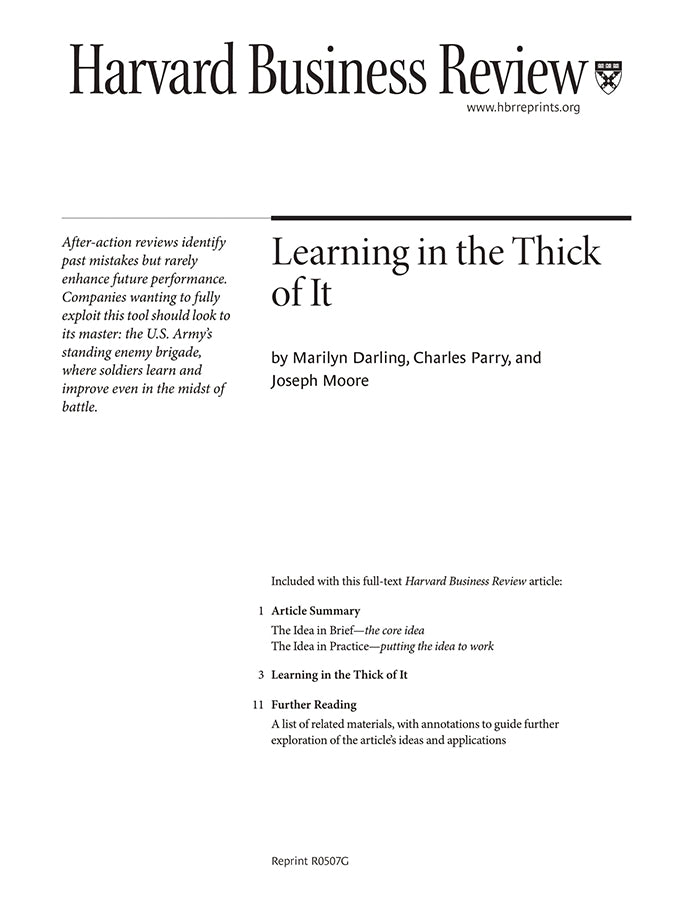Learning in the Thick of It
受取状況を読み込めませんでした
This article includes a one-page preview that quickly summarizes the key ideas and provides an overview of how the concepts work in practice along with suggestions for further reading. The U.S. Army's Opposing Force (OPFOR) is a 2,500-member brigade whose job is to help prepare soldiers for combat. Created to be the meanest, toughest foe that soldiers will ever face, OPFOR engages units-in-training in a variety of mock campaigns under a wide range of conditions. Every month, a fresh brigade of more than 4,000 soldiers takes on this standing enemy. OPFOR, which is stationed in the California desert, always has the home-court advantage. But the force being trained--called BLUFOR--is numerically and technologically superior. It possesses more resources and better, more available data. It is made up of experienced soldiers. And it knows just what to expect, because OPFOR shares its methods from previous campaigns with BLUFOR's commanders. In short, each BLUFOR brigade is given practically every edge. Yet OPFOR almost always wins. Underlying OPFOR's consistent success is the way it uses the after action review (AAR), a method for extracting lessons from one event or project and applying them to others. AAR meetings became a popular business tool after Shell Oil began experimenting with them in 1998. Most corporate AARs, however, are faint echoes of the rigorous reviews performed by OPFOR. Companies tend to treat the process as a pro-forma wrap-up, drawing lessons from an action but rarely learning them. OPFOR's AARs, by contrast, generate raw material that is fed back into the execution cycle. And while OPFOR's reviews extract numerous lessons, the brigade does not consider a lesson to be learned until it is successfully applied and validated. It might not make sense for companies to adopt OPFOR's AAR processes in their entirety, but four fundamentals are mandatory: Lessons must benefit the team that extracts them; the AAR process must start at the beginning of the activity; lessons must link explicitly to future actions; and leaders must hold everyone, especially themselves, accountable for learning.
【書誌情報】
ページ数:16ページ
サイズ:A4
商品番号:HBSP-R0507G
発行日:2005/7/1
登録日:2012/3/28


